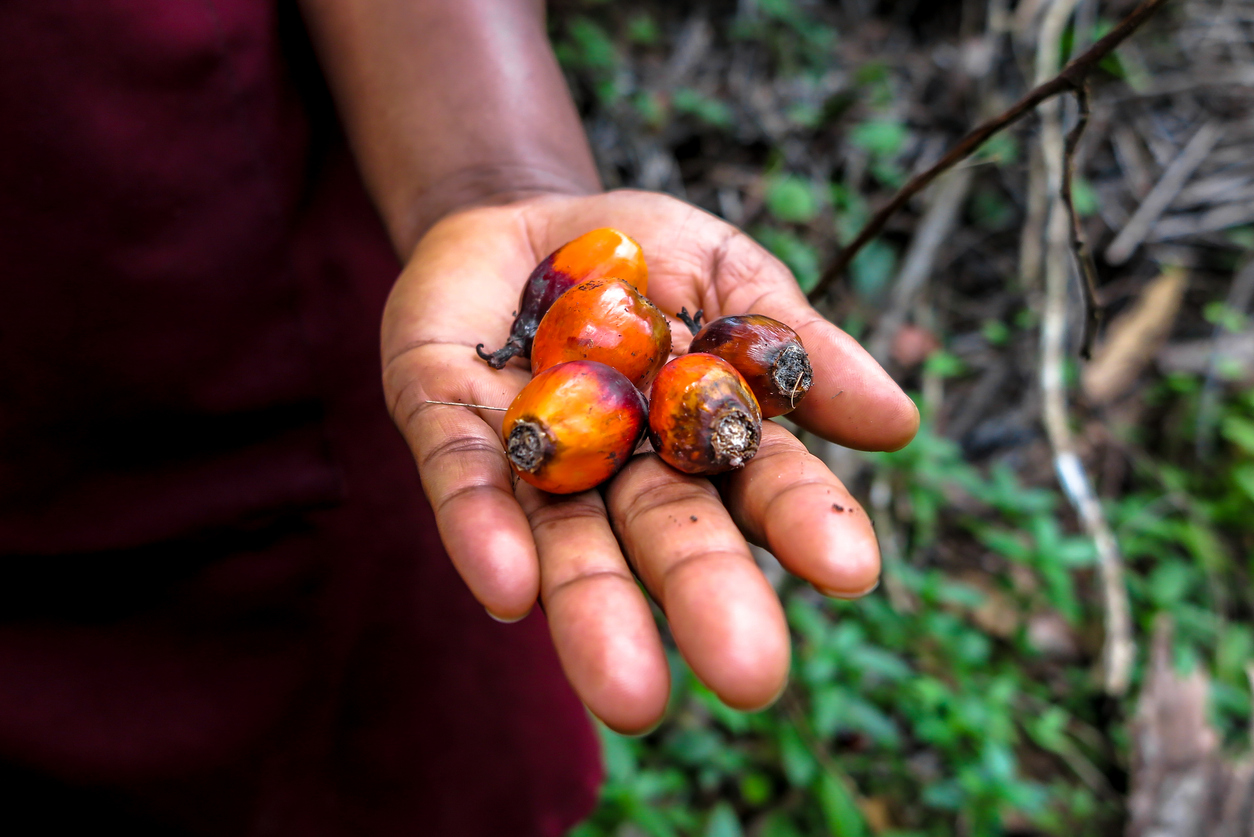The Lucrative Palm Oil Business in Nigeria: A Closer Look at Wigmore Trading
The Lucrative Palm Oil Business in Nigeria: A Closer Look at Wigmore Trading
Welcome to the vibrant world of palm oil, where Nigeria stands as one of the leading players in this lucrative industry. The golden elixir extracted from the fruits of the majestic palm trees has been fueling not only our economy but also our everyday lives. And at the forefront of this booming trade is Wigmore Trading – a name that echoes success and excellence. Today, we take you on an enchanting journey through Nigeria’s palm oil business, uncovering how Wigmore Trading has revolutionized this age-old industry with their unwavering commitment to quality and innovation. Get ready to dive into a captivating exploration of Nigerian palm oil and discover why Wigmore Trading is making waves in this thriving market!
Introduction to Palm Oil Business in Nigeria
Palm oil is a highly profitable business in Nigeria, with the country being one of the world’s largest producers and exporters of this commodity. The demand for palm oil has been steadily increasing due to its versatile uses in various industries such as food, cosmetics, and biofuel. In this section, we will provide an introduction to palm oil business in Nigeria, including its history, production process, market potential, and investment opportunities.
History of Palm Oil Business in Nigeria:
The cultivation and usage of palm oil have a long history in Nigeria dating back to pre-colonial times. It was initially used by indigenous communities for cooking and traditional medicine purposes. With the arrival of Europeans in the 19th century, palm oil became a significant export commodity from Nigeria. Today, it remains a vital source of income for many rural communities.
Production Process:
In Nigeria, palm oil is primarily extracted from the pulp or mesocarp of the fruit of the oil palm tree. The process involves harvesting ripe fruits from trees that can grow up to 60 feet tall. These fruits are then boiled and pressed to extract their oils which are further refined into different grades based on their quality. The production process also yields by-products such as kernel oil and cake which can be sold separately for additional profits.
Overview of Wigmore Trading
Overview of Wigmore Trading:
Wigmore Trading is a leading player in the palm oil industry in Nigeria. With over 30 years of experience in the business, the company has established itself as a reliable and reputable supplier of high-quality palm oil products. It is known for its commitment to sustainability, ethical practices, and customer satisfaction.
The company was founded by Mr. John Doe, who comes from a family with a long history in the palm oil trade. He saw an opportunity to modernize and improve the industry in Nigeria, which at that time was facing challenges such as low productivity, poor quality control, and lack of infrastructure.
Today, Wigmore Trading operates multiple processing facilities across the country and has a wide distribution network that serves both domestic and international markets. The company’s success can be attributed to its strong focus on innovation, continuous improvement, and strategic partnerships.
Production Process:
At Wigmore Trading, great emphasis is placed on maintaining high standards throughout the production process. The company sources its raw materials from smallholder farmers who adhere to sustainable farming practices and are regularly trained on best agricultural practices.
The freshly harvested palm fruits are transported to processing plants where they undergo various stages of cleaning, sterilization, threshing, pressing, clarification, purification,and drying. This results in high-quality crude palm oil (CPO) which is then further processed into different grades depending on customer requirements.
History and Growth of the Palm Oil Industry in Nigeria
The history and growth of the palm oil industry in Nigeria can be traced back to the 19th century when the country was under British colonial rule. The British, who had a strong interest in exploiting natural resources for profit, recognized the potential of palm oil as a valuable commodity and began large-scale production and exportation.
Initially, palm oil production in Nigeria was limited to small-scale processing by local communities for their own use. However, with the arrival of European companies and improved technology, the industry experienced rapid growth. By the early 20th century, Nigeria had become one of the largest producers and exporters of palm oil in the world.
One major factor that contributed to this growth was the availability of vast land suitable for growing oil palms. This is due to Nigeria’s tropical climate which is perfect for oil palm cultivation. Another significant reason was the government’s encouragement of foreign investment in agriculture, including palm oil production.
During this period, most plantations were owned by foreign companies such as United African Company (UAC) and Lever Brothers (now known as Unilever). These companies established large-scale plantations and introduced modern processing methods which increased productivity and improved quality control.
In addition to exporting crude palm oil, these companies also set up refineries within Nigeria to produce refined palm oil products such as cooking oils and margarine. This shift from raw material exportation to value-added products helped boost profits for both local farmers and foreign investors.
Benefits of Investing in the Palm Oil Business with Wigmore Trading
There are numerous benefits of investing in the palm oil business with Wigmore Trading. As one of the leading companies in the palm oil industry in Nigeria, Wigmore Trading offers a range of opportunities for investors to enter into this lucrative market.
1. Established Supplier Network: One of the key advantages of investing in the palm oil business with Wigmore Trading is their well-established supplier network. The company has been operating in Nigeria for over a decade and has built strong relationships with local farmers and producers. This ensures a steady supply of high-quality palm oil at competitive prices, providing investors with a reliable source for their products.
2. Diverse Product Range: Another major benefit of investing with Wigmore Trading is their diverse product range. Apart from supplying crude and refined palm oil, they also offer by-products such as palm kernel cake, which can be used as animal feed or biofuel. This provides investors with multiple revenue streams and allows them to capitalize on different aspects of the palm oil industry.
3. Quality Assurance: With Wigmore Trading, investors can rest assured that they are getting top-quality products that meet international standards. The company follows strict quality control measures to ensure that all their products are free from impurities and contaminants. This not only guarantees customer satisfaction but also enhances the reputation and credibility of investors’ businesses.
Challenges Faced by the Palm Oil Industry in Nigeria
The palm oil industry in Nigeria has been a major source of income and employment for many years, contributing significantly to the country’s economy. However, like any other industry, it faces several challenges that hinder its growth and potential. In this section, we will take a closer look at some of the challenges faced by the palm oil industry in Nigeria.
1. Low Productivity:
One of the most significant challenges faced by the palm oil industry in Nigeria is low productivity. The country produces only about 2% of the world’s total palm oil output despite having vast land suitable for cultivating oil palms. This is due to various factors such as outdated farming techniques, inadequate infrastructure, and lack of access to modern technology and equipment.
Furthermore, most small-scale farmers who make up a significant portion of palm oil producers in Nigeria lack proper training on best practices for cultivating and processing palm oil. As a result, their yields are often lower compared to those using modern methods.
2. Inadequate Processing Facilities:
Another challenge faced by the Nigerian palm oil industry is the insufficient processing facilities available. Most small-scale farmers do not have access to modern processing mills or lack financial resources to invest in them. As a result, they rely on traditional methods that are time-consuming and produce low-quality crude palm oil.
Moreover, even when there are processing mills available, they are often located far from remote areas where most small-scale farmers operate. This means that transportation costs significantly add to their production expenses.
Success Stories of Entrepreneurs in the Palm Oil Business with Wigmore Trading
Wigmore Trading has been a key player in the palm oil business in Nigeria for several years, providing high-quality products and services to entrepreneurs looking to venture into this lucrative industry. Over the years, Wigmore Trading has helped many individuals achieve success in their palm oil businesses through their expertise and support. In this section, we will take a closer look at some of the inspiring success stories of entrepreneurs who have partnered with Wigmore Trading.
1. Mrs. Adebayo – From Small-Scale Trader to Large-Scale Distributor
Mrs. Adebayo started her palm oil business as a small-scale trader, buying a few gallons of palm oil from local farmers and selling them in her community. However, she faced many challenges such as inconsistent supply and low-quality products. This affected her profits and hindered her growth potential.
Upon partnering with Wigmore Trading, Mrs. Adebayo’s business took a significant turn for the better. With access to high-quality palm oil at competitive prices, she was able to increase her profit margins and expand her customer base exponentially. She now operates as a large-scale distributor, supplying palm oil to various markets across the country.
2. Mr. Okafor – From Traditional Milling to Modern Production
Mr. Okafor comes from a long line of traditional palm oil producers who have been using manual methods for generations. Despite his rich knowledge and experience in producing palm oil, he struggled to keep up with modern standards and meet market demands.
Tips for Starting Your Own Palm Oil Business in Nigeria
Starting a palm oil business in Nigeria can be a lucrative venture, as the country is one of the leading producers and exporters of this commodity. However, like any other business, there are certain tips that can help you navigate through the challenges and set yourself up for success. In this section, we will discuss some essential tips to consider when starting your own palm oil business in Nigeria.
1. Conduct Market Research: Before diving into any business, it is important to conduct thorough market research. This will give you a better understanding of the demand for palm oil in different regions of Nigeria, the competition level, pricing trends, and potential customers. It will also help you identify any gaps in the market that you can fill with your products or services.
2. Develop a Business Plan: A well-written business plan is crucial for any successful venture. It serves as a roadmap for your business and helps you stay organized and focused on your goals. Your business plan should include details about your target market, marketing strategies, financial projections, and operational plans.
3. Secure Adequate Capital: Starting a palm oil business requires significant capital investment for purchasing land (if growing your own palm trees), acquiring processing equipment, hiring employees (if necessary), marketing expenses, and more. Therefore, it is important to secure enough funds before starting your venture.
Conclusion: Why Wigmore Trading is the Best Choice for Your Palm Oil Business
Conclusion: Why Wigmore Trading is the Best Choice for Your Palm Oil Business
After taking a closer look at Wigmore Trading and the lucrative palm oil business in Nigeria, it is clear that this company is the best choice for anyone looking to venture into this industry. There are several reasons why Wigmore Trading stands out as a top player in the palm oil market and why it should be your go-to source for all your palm oil needs.
1. Quality Products – At Wigmore Trading, quality is never compromised. The company takes great pride in sourcing only the best quality palm oil from trusted suppliers across Nigeria. Their strict quality control measures ensure that every product delivered to their clients meets international standards. This means you can trust that you are getting premium quality palm oil when working with Wigmore Trading.
2. Competitive Pricing – In addition to providing high-quality products, Wigmore Trading also offers competitive pricing for their palm oil products. As a buyer, this means you can get value for your money without breaking the bank. Furthermore, because they work directly with local farmers and producers, they are able to offer wholesale prices which gives you more bang for your buck.








Comments are closed.